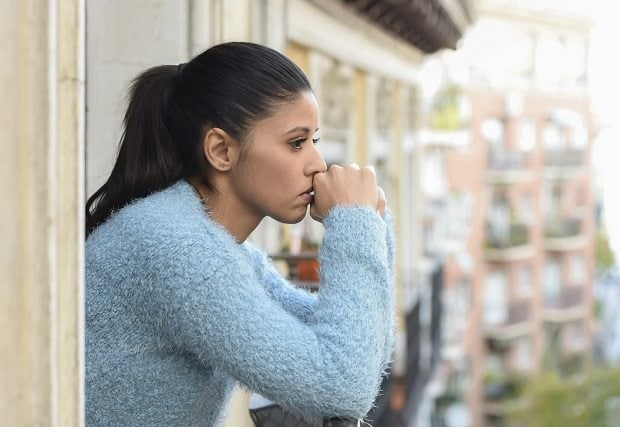 As the COVID-19 virus continues to wave over the world, an emotional pandemic is following fast in its wake.
As the COVID-19 virus continues to wave over the world, an emotional pandemic is following fast in its wake.
As the Coronavirus has plunged the entire world into uncertainty, the relentless news about the pandemic has left us all ridden with various degrees of anxiety. Given the impact on our everyday lives, routines and habits, the anxiety and stress we feel is valid especially knowing this reality: that COVID-19 has altered our lives forever. Jobs have been lost and many more are at risk, savings, retirement funds and investments are decreasing at an unprecedented rate and the new household term "social distancing" has made our homes both a haven and a potential hotspot for COVID-19.
Related: Remote work: 7 ways to help employees adjust to the new normal's new workplace
Feelings of powerlessness, the loss of control over our lives and the fear of the unknown can create anxiety and give way to panic and despair. And as the virus continues to wave over the world, an emotional pandemic is following fast in its wake. The national lockdown taps into our fears and has triggered all of our emotions as the vast majority of Americans fear contracting coronavirus. As for those who already suffer from anxiety disorders, the pandemic has become a pure, personal nightmare.
According to the National Institute of Mental Health just over 19 percent of Americans will experience at least one anxiety disorder over the course of a year. Of course, not every disorder will be especially impacted by COVID-19 but many like OCD, agoraphobia (fear of going outside) social anxiety and separation anxiety will only be more exaggerated and dredge up feelings that have long since been in remission. Catastrophic worrying—what if I can't pay bills, what if my family members get sick and die… what if…
If the coronavirus has taken over your mental wellness, it is important to stay calm. I suppose we've all read or heard about various ways to keep ourselves occupied but that only lasts until reality sets in once you've put down your book or finished running in place. At times like this I turn back to something I've espoused for years, "don't worry about the "what ifs" as the "ifs" rarely turn out to be as bad as the worry caused by thinking about it." I don't suggest that these are care-free times. I'm simply suggesting that worry will only negatively affect your health both physically and mentally.
There are some things that can help prevent and possibly reduce anxiety. With limited access to providers, our health and well-being is in our own hands. Here is my advice to help keep anxiety at bay:
- Limit health-related COVID-19 news: Stay informed not inundated. If it means asking a friend to provide only emergency orders, it could help your feelings from spiraling out of control.
- Remember "This too shall pass," a phrase tracing back to ancient Persian poets and reserved to comfort those in difficult times. Coronavirus is not the first pandemic to affect humans and won't be the last.
- If you are a cyberchondriac, by all means swear off Google and stop searching symptoms.
- Practice self-care: Exercise to gain strength, eat well and try relaxing activities to soothe your nervous system.
- Keep chronic conditions in check with the use of technology. Digital health solutions can help you better manage symptoms, remember medication, and provide pertinent information about your conditions – from diabetes to asthma, depression and COPD, many employers provide digital solutions to help improve your mental and physical health.
Lastly, stay home–even as each day gets tougher. The silver lining is that if you, or your family members, sheltering at home haven't been exposed then the likelihood is you'll be okay.
Hal Rosenbluth, New York Times best-selling author of The Customer Comes Second, Put Your People First and Watch 'em Kick Butt was the visionary leader of Rosenbluth International, $6B global travel management firm that emerged successfully following the travel industry's 9/11 devastation. His insight, experience and strategies imparted in his book are still widely valued by CEOs and entrepreneurs and used to teach at Universities throughout the world. Hal is currently chairman and CEO of New Ocean Health.
